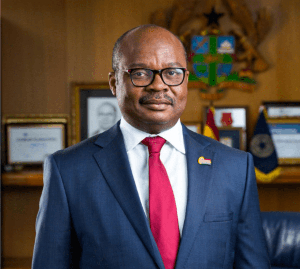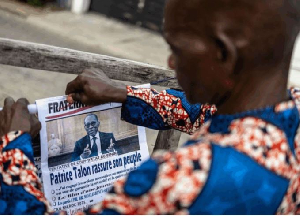Ishmael Mensah Blog of Friday, 3 January 2025
Source: Ishmael Mensah
According to the BoG Governor, the Debt Exchange Program has nothing to do with BoG independence.

Dr. Ernest Yedu Addison, the governor of the Bank of Ghana (BoG), has categorically denied assertions that the government's debt swap program is connected to the central bank's independence.
He highlighted that the debt swap program was a direct response to a serious national problem and had nothing to do with the BoG's autonomy when speaking on Joy News' PM Express Business Edition on January 2.
Dr. Addison made it clear that the debt exchange program had nothing to do with the central bank's independence.
He emphasized the program's significance at a time when Ghana was on the verge of economic collapse and called it a "pure crisis issue."
For all Ghanaians, it was a question of life and death. Nothing else mattered at that point. There would be no payment of salaries. No one was receiving their investment returns, so there was going to be anarchy," he stated.
Dr. Addison compared Ghana's economic collapse to that of Sri Lanka and emphasized the BoG's role in preventing Ghana from suffering a similar fate.
Since Sri Lanka's central bank had depleted its foreign exchange reserves, it was unable to intervene. We were fortunate to still have reserves in Ghana's instance," he said.
In response to inquiries concerning the economic shocks that prompted the debt exchange scheme, Dr. Addison clarified that the BoG's intervention was a remedy rather than a shock.
He stated, "The IMF's approach to the crisis was clear: while we worked on the program, the Bank of Ghana had to continue financing the government to maintain stability."
He explained the schedule, saying that the IMF's recommended course of action was to declare a debt standstill and then exchange the debt.
Those in possession of government instruments were then affected. Without the proper regulations in place, the debt standstill that occurred in October could have occurred much earlier in the year, but it would have been chaotic, Dr. Addison added.
Arguments that the BoG could have done more to lessen the economic shocks were rebutted by the governor.
He stated that the actions taken were required to stabilize the economy and avoid a complete collapse, and that "this was the solution given the situation the country found itself in."
The central bank's actions were in line with the IMF's framework to restore stability, Dr. Addison reiterated, rejecting the notion that its independence was compromised during the crisis.
Dr. Addison's comments demonstrate his dedication to clearing up misunderstandings regarding the BoG's involvement in the debt exchange scheme.
He aimed to move the conversation away from independence issues and into the larger framework of Ghana's economic recovery by highlighting the program's crisis-driven character.
"The recent financial difficulties were a matter of survival. "Let's avoid making things too easy," he said.














